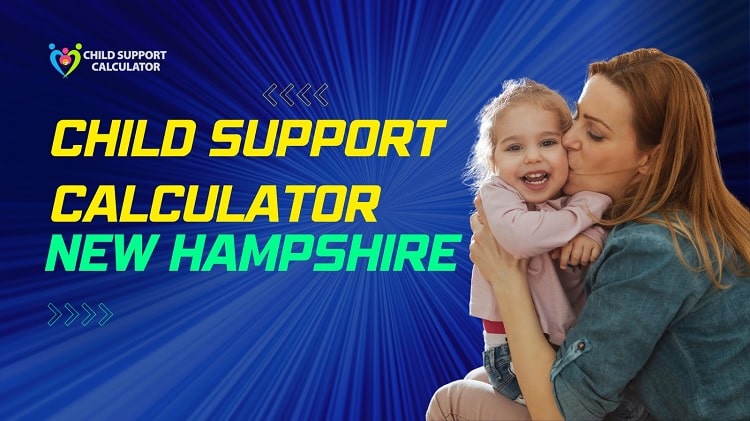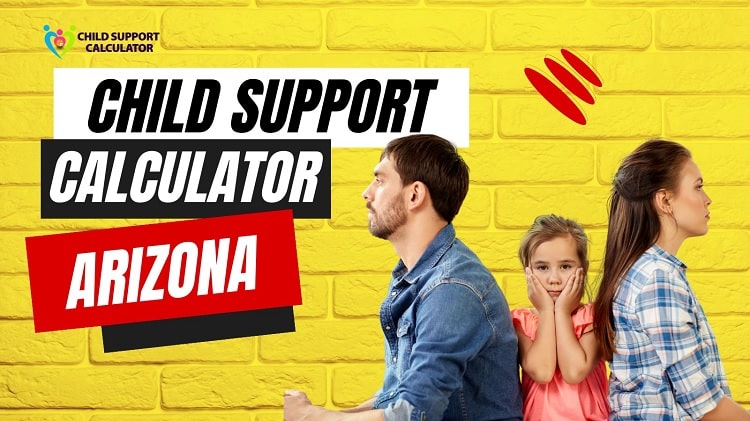NH Child Support Calculator (New Hampshire)| Guidelines – 2024
In New Hampshire, both parents are responsible for financially assisting their children. This is calculated with the NH child support calculator.
In the majority of situations, unfortunately, only the non-custodial parent (often known as the obligor for child support purposes) pays child support. The obligee (custodial parent) is still responsible for child support, but the law assumes that this parent spends the proper amount on the kid directly.

The parent’s income and the number of children they support are the most important factors in calculating child support using the New Hampshire child support calculator. Parents may also be required to split childcare and medical expenditures and other costs such as schooling.
The Child Support Standards can be used to determine your fair share of support, but a court can change the amount of support if the guidelines yield a number that is unjust to a parent or the child.
How To Calculate Child Support in New Hampshire
Use the New Hampshire child support calculator to figure out how much child support to pay. Gross income includes your earnings i.e., your salary, wages, bonuses, alimony (if any) and commissions. Income from pensions, severance pay, royalties, dividends, trusts, or rental payments – among other things – will be considered by the courts. Winnings from lotteries and even spousal support are taken into account.
If you’re jobless, there’s a good possibility you’ll receive money for child support through social security, workers’ compensation, unemployment, or disability payments. A court might also equate income to a deadbeat parent who is willfully jobless or long-term unemployed unless there is a solid justification for working less or not at all.
For example, if a parent cannot work due to a handicap, they will not be held liable for additional income.
Temporary Assistance for Needy Families (TANF), food stamps, and other government assistance programs are examples of benefits that might be excluded from gross income.
You can exclude pre-existing payments like child support, 50 percent of real self-employment taxes, any necessary retirement contributions, taxes, and daycare and medical assistance expenditures after you have each parent’s gross income.
The outcome of the computation is the modified earnings of the parents. Add the profits together (to get the combined income), and then look up the total child support payment based upon the number of children to support in the Child Support Guidelines Table.
The entire amount of support is then divided between the parents based on their wages, with the parent who earns more receiving a higher portion of the child support obligation. Child support isn’t designed to penalize the parent who makes more money. Instead, it safeguards the child’s living conditions.
Use the state’s Child Support Guidelines Worksheet and spreadsheet instructions to help you compensate for what to support, practice what you can deduct, as well as to lead you through the computations.
Challenging the Amount of Support
A court can change the amount of support if a parent or child has specific circumstances that make following the standards unjust. Either parent can petition the court to vary from the guidelines before a child support order is completed.
Then, with the best interests of the child in mind, a court will consider the following elements in determining whether or not to increase or decrease child support:
- Recurring high medical, dental, or educational costs.
- The parent’s income is considered high or low.
- The financial ramifications of stepparents or other children.
- The paying parent incurs appropriate parenting expenditures.
- The financial implications of selling a marital property for the benefit of a kid
- Taxes
- Timetable for parenting.
- Expenses associated with post-secondary education.
- Other unique circumstances, taking into account all relevant facts.
Modifying the Amount
A parent can seek the court to amend (alter) a child support order at any time after it has been established. If the order was issued or amended less than three years ago, you must select a significant change in circumstances, such as the loss of a job. If your existing order does not cover the child’s medical assistance, you can request a change at any time.
If the order has been in force for three years or more, you do not need to establish a significant period of adjustment. More information is available in New Hampshire’s modification kit.
State of NH Child Support Services
Child support matters are administered by the Division of Child Support Services (DCSS) of the New Hampshire Department of Health and Human Services in New Hampshire, which calculates the amount using the New Hampshire child support calculator. DCSS provides a variety of services to eligible parents, including:
Locating the non-custodial parent
If a parent who is liable for paying child support is absent, DCSS may be able to locate them through a variety of tools, such as new hire reporting directories and credit bureaus.
Establishing paternity
To start a child support order, legal paternity must be proven. DCSS can assist by submitting an Affidavit of Paternity paperwork or seeking a paternity test by court order.
Establishing child support orders
Child support orders in the state of NH include both financial and medical support. The economic assistance orders are based on New Hampshire’s Child Support Guidelines. Emergency care orders must be 4 percent of the non-custodial parent’s total income to fulfill the “reasonable expense” threshold.
Enforcing court orders
DCSS can withhold earnings, seize tax returns and lottery winnings, cancel driver’s licenses, denounce them to the credit bureau, put a lien on their assets, and reject their passports in order to collect child support from non-paying non-custodial parents.
Collecting and distributing child support payments
After collecting funds from the non-custodial parent, DCSS distributes financial support to custodial parents. Child support payments are normally mailed within two business days by DCSS.
What can I do if child support is not paid?
It’s critical to keep detailed records of all support payments you get. You can apply for assistance through DCSS and file a Motion for Disobedience if child support payments have been mandated but have not been paid. The court may do any or all of the following if the non-paying parent is in contempt:
- Payments shall be made using DCSS (after you get this order, you must apply for services with DCSS if you have not already done so and send them a copy of the order).
- Order the sale of a property.
- The order that the non-paying parent is imprisoned until the child support is paid.
- Order the non-paying parent to pay your legal expenses and charges.
- The order that the non-paying parent’s support is deducted from their wages.
- The tax refund of the absent parent should be intercepted.
- Additional legal means of obtaining child support.
Can a support order differ from the guidelines?
If there are unusual circumstances, parents may agree to a support order different from the guideline amount, or a court may impose an additional amount. Extraordinary medical, dental, or educational expenditures; either parent’s extremely high or low income; or any unusual circumstances that make an order too low or too high are examples of special occasions.
Any child support order that deviates from the standards must be approved by the court (and DCSS approval is required if a parent receives public assistance).
How do I notify the other party?
You must submit two original copies of the petition to the court when you file it (three total). The court then sends you two copies of the document, along with “Orders of Notice.” The Orders of Notice are court orders and instructions that apply to both you and the opposing party after they are received.







